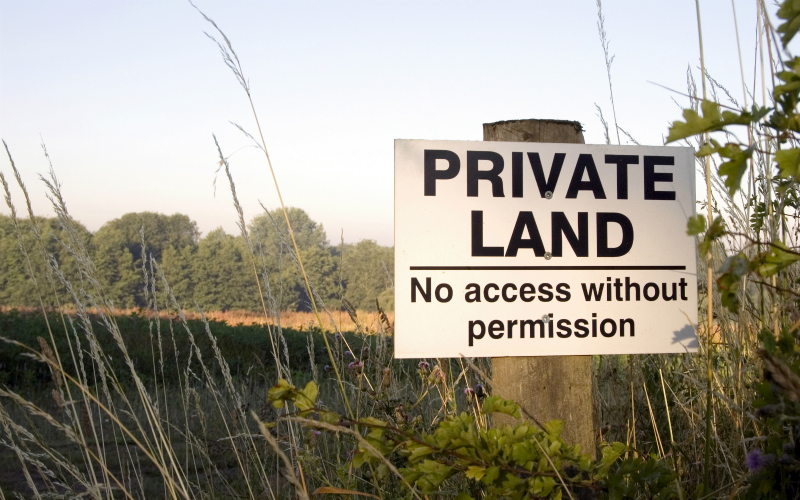
A Welsh Sheep Farmer recently made the news when he filled a quarry with 60 tonnes of slate because he was frustrated with people spoiling the site, but would this be acceptable in Scotland?
Blue Lake
The current owner of the Blue Lake, a beauty spot in Gwynedd, Wales has allowed public access to the site since the 1980’s. In recent times however the landowner noticed a rise in the amount of litter being left at the site by visitors. To deal with the issue, the owner blocked the entrance to the site with 60 tonnes of slate in the hope it can now become a protected nature reserve.
Scottish comparison
The Blue Lake is privately owned land and there is no right of way to it. The landowners permission having been removed, the public have no right to access the site. The position in Scotland is quite different where members of the public have traditionally enjoyed rights of access to hill ground. This is known as the ‘right to roam’ which was formally recognised in law with the introduction of the Land Reform (Scotland) Act 2003. The Scottish Outdoor Access Code was later produced to outline access rights, how they should be exercised and the obligations and rights of Landowners.
Generally speaking, public access rights can be exercised on most land and inland water in Scotland, including mountains, woods and forests, margins of fields where crops are growing, lochs and rivers, most parks and open spaces. The rights can be exercised at any time of the day or night and can be used for most recreational purposes, such as hiking, horse riding, cycling and wild camping. Exceptions to these access rights include houses, gardens, lands where crops are growing and sports or playing fields.
Can Scottish Landowners prevent access?
Landowners or Land Managers must manage their land in a manner which is compatible with the public’s right of access or right to roam. Specifically, landowners must not purposefully or unreasonably prevent or deter the public from exercising access rights. For example, landowners cannot place signs or erect fences for the sole purpose of preventing access (although in some circumstances signs and fences can be appropriate) and they also cannot deliberately place animals which are known to be aggressive to deter the public from taking access. If landowners are considering any major changes to or development of their land, access rights must be considered.
If the landowner uses his or her land for the purposes of grazing cattle, this carries a number of additional risks. The Health and Safety Executive have published specific guidance to help landowners balance these risks against compliance with the Scottish Outdoor Access Code.
Dealing with unreasonable behaviour
Although Landowners have an obligation not to hinder access under the Scottish Outdoor Access Code, the right of access is not without responsibilities on the part of the public. In the case of Blue Lake, the landowner prevented access to the site to avoid further littering and damage to the land by the public. Whilst such extreme steps cannot be taken in Scotland, equally landowners do not have to accept such treatment of their land.
If someone is acting unreasonably on your land, you can ask them to stop. If they do not stop when asked, you can then ask them to leave your land and if a person’s behaviour is criminal, you should contact the Police. The authorities may pursue criminal charges if the individual is acting illegally. Further information on whether or not unreasonable behaviour is a criminal offence can be found here.
Where the unreasonable behaviour continues or the culprit cannot be identified, Landowners can also approach their Local Authority for assistance. The Authority can visit land where unreasonable behaviour such as persistent littering is taking place to determine how they can assist. For example, they may suggest placing signage or waste receptacles for use by members of the public. If there is a high level of anti-social behaviour taking place, the Local Authority may even refer the matter to their Anti-social Behaviour Unit.
Zoe Irving is a Senior Solicitor in our specialist Land & Rural Business team. For further information and advice on managing your land in conjunction with the public’s access rights, please contact Zoe or any member of our Land and Rural Business Team.
